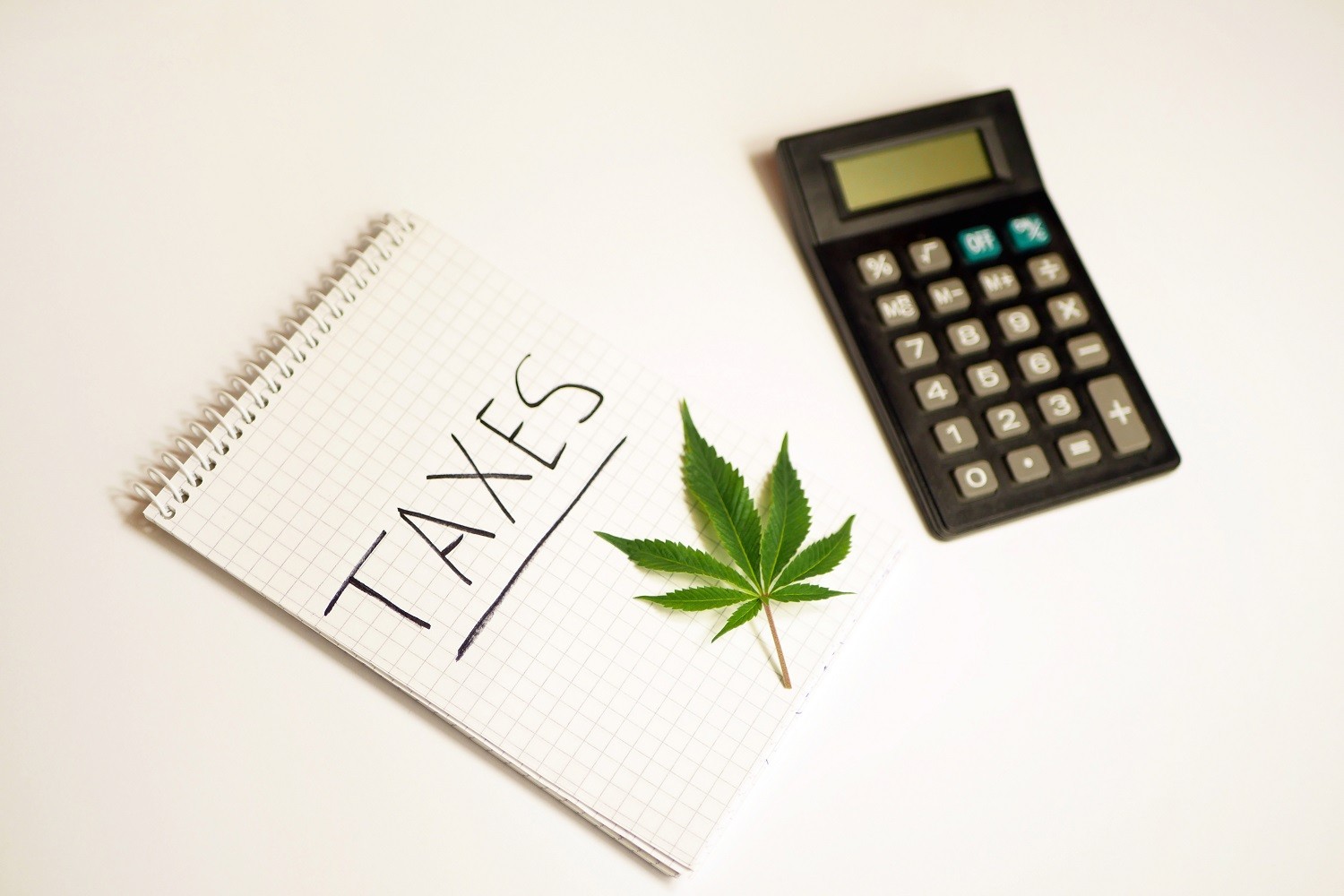
End of California’s 2022 Legislative Session Brings Changes for Cannabis Operators
The California legislative session ends on August 31st each year and the Governor has until mid-October to veto or sign the legislation. In the 2022 legislative session there were several bills signed by Governor Newsom that affected the cannabis industry. Most importantly was cannabis tax reform and the elimination of the cultivation tax. This was an important victory won by the cannabis industry that was being crushed by excessive taxation.A summary of other 2022 legislation is below.Licensed retailers and distributors should begin preparing for the change in excise tax collection from distributors to retailers beginning January 1, 2023
“Lorem ipsum dolor sit amet, consectetur adipiscing elit, sed do eiusmod tempor incididunt ut labore et dolore magna aliqua. Ut enim ad minim veniam, quis nostrud exercitation ullamco laboris nisi ut aliquip ex ea commodo consequat. Duis aute irure dolor in reprehenderit in sed.”

Taxes
Cannabis Excise Tax Reform (AB 195) – Passed, excise tax collection and CDTFA submission moves from distributor to retailer 1/1/2023
This bill eliminated the cultivation tax and shifted the excise tax collection responsibility from distributors to retailers. Further, this bill prevents the state from increasing the current 15% until December 31, 2025; after which any increase in excise tax will only be to make up lost revenue from the elimination of cultivation tax. Lastly, AB 195 also cracks down further on unlicensed cannabis sellers by imposing additional tax penalties. This bill seeks to tax and regulate the cannabis industry in a way that drives out the illicit market. Read more about AB 195 here.
Retailers (storefront and delivery), distributors, and microbusinesses with retail and/ delivery should read this CDTFA Special Notice regarding changes to excise tax collection and remittance: https://www.cdtfa.ca.gov/formspubs/L866.pdf

Medicinal Cannabis Legislation
Medicinal Cannabis Patients’ Right of Access (SB 1186) – Passed, effective 1/1/2024
This important legislation will prevent local bans on medicinal cannabis delivery and expand medicinal cannabis patients’ access. After January 1, 2024, local jurisdictions in California may no longer adopt or enforce regulations that ban or effectively prevent the sale of medicinal cannabis for by delivery to patients or their primary caregivers within their local jurisdiction. While some reasonable local regulations are still allowed, SB 1186 protects medicinal cannabis patients’ rights and expands licensed retail sales of medicinal cannabis in previously banned areas. Read more about SB 1186 here.
Compassionate Access to Medical Cannabis Act – Known as Ryan’s Law (SB 988) – No explicit effective date, passed 9/2/2022
This legislation provides doctors and healthcare facilities with greater ability to recommend or allow the use of medicinal cannabis in a healthcare facility. Healthcare facilities can now store, use, and give access to medicinal cannabis for qualified patients within healthcare facilities. Prior to this bill passing, healthcare facilities were required to removes the formerly existing requirements that healthcare facilities treat medicinal cannabis use within the facilities with the same strict requirements applicable to Schedule II, III, and IV drugs. Additionally, SB 988 removes the threat of enforcement actions by the State Department of Public Health regarding medicinal cannabis use by qualified patients within the health care facility. This bill relaxes previously harsh requirements surrounding how qualified patients could use, store, and remove medicinal cannabis while on the premises of a healthcare facility and works to reduce the stigma surrounding medicinal cannabis use. Read more about SB 988 here.
Physicians and Surgeons: Treatment and Medication of Patients Using Cannabis (AB 1954) – No explicit effective date, passed 09/2/2022

This important bill prohibits physicians and surgeons from denying treatment or medication to an otherwise qualified patient based only on a positive drug test for THC. However, physicians and surgeons may permissibly refuse to treat THC-positive patients if, after evaluating the patient, the physician or surgeon makes a clinical determination that the proposed medication or treatment would adversely interact with THC. For example, physicians and surgeons may justly conclude that combined treatment with THC would render the treatment ineffective, decrease the patient’s daily functionality, or otherwise worsen the patient’s condition. Additionally, the patient’s use of medical cannabis that a licensed physician and surgeon have recommended shall not be considered a “use of an illicit substance” in the physician or surgeon’s determination. Finally, AB 1954 also protects physicians or surgeons against punishments or adverse impacts for treating qualified patients. This bill expands treatment access to THC-positive patients, is an essential step in reducing the stigma around cannabis use in the medical field, and protects doctors and physicians from several risks formerly associated with treating those patients. Read more about AB 1954 here.
Employment and Cannabis
Discrimination in Employment: Use of Cannabis (AB 2188) – Passed, effective 1/1/2024
California employers will soon be prevented from discriminating against a person in hiring, termination, and other employment penalties if the discrimination is based upon the person’s use of cannabis off the job and away from the workplace. Although this legislation does not prevent employers from drug-testing employees at large, it does provide that a test for inactive cannabis metabolites, which can remain in the body months after use, is not grounds for hiring or termination. Finally, the legislation does not apply to employers testing for impairment or use of cannabis while employees are still active on the job. Generally, it also does not apply to building and construction industry employees or employees subject to Federal drug testing requirements. Altogether, Californians now have protection from employment discrimination based on their lawful, off-duty use and enjoyment of cannabis and cannabis products. Read more about AB 2188 here.

Other
Additional Labeling and Rotating Messaging Disclosure Requirements for Cannabis Products (SB 1097)– Dead for the year, no effective date
Fortunately, this bill did not pass. However, we can expect a similar bill to be attempted again in the 2023 legislative session. First, the bill sought to require retailers and microbusinesses selling or delivering cannabis products to provide each new consumer with a copy of a CDPH-designed brochure warning customers about the dangers of cannabis upon the consumer’s first purchase and to post the brochure at the point-of-sale all at the licensee’s expense. The brochure would include an exhaustive list of health warnings, safe use guidelines, and other requirements. Second, the bill sought additions to the existing warning label requirements on cannabis, cannabis products, and all advertising/marketing. The updated warning standards would require all cannabis product packaging/labeling to include a bright yellow, large type-font, graphic warning covering at least 33% of the face of a product warning purchasers about the dangers of cannabis. Advertisements would need similar warnings covering at least 15% of all visuals and verbal warnings for radio features. Though the bill will likely come back in some form or another, its current failure to pass marks a victory for the cannabis industry and eases the anticipated burden of adding more to already-intensive labeling requirements. Read more about SB 1097 here.
Cannabis Crimes: Resentencing (AB 1706) – Passed, first reconsideration deadline 3/1/2023
AB 1706 provides increased accountability for county district attorneys and courts in addressing past cannabis convictions. It requires county district attorneys and courts to process past cannabis convictions eligible for resentencing, dismissal, and sealing, then directs the Attorney General to declare those records resentenced, dismissed, and sealed unless a local prosecutor challenges it. AB 1706 also requires the Department of Justice to post information on its website and conduct an awareness campaign to inform the individuals that this bill may impact. Lastly, AB 1706 requires the Department of Justice to produce a quarterly progress report and submit it to the Legislature. This bill is essential in reducing the long-term stigmas around cannabis use and ensures Californians with old cannabis-related convictions will finally have those convictions sealed. Read more about AB 1706 here.
Cannabis: Interstate Agreements (SB 1326)–Passed, effective 3/1/2023
This bill that will allow interstate commerce and transfer of cannabis between licensed operators is a positive step toward legalized state-to-state cooperation in cannabis transfer and sale for licensed operators. First, the bill authorizes the Governor to make agreements with other cannabis-legalized states that allow interstate transfer of cannabis between licensed operators if Federal law is amended to permit such an agreement. Second, the agreement would only include non-Californian licensees whose cannabis products also meet MAUCRSA standards. Thus, states participating in the potential interstate agreement must meet or exceed California’s strict public health and safety requirements. Although there are many conditions for its effectiveness, SB 1326 stands as a hopeful sign of eased restrictions on interstate cannabis transfer in the future. Read more about SB 1326 here.
California Cannabis Tax Fund: Spending Reports (AB 2925) – Effective July 10, 2023
This legislation is related to government reporting and does not directly affect cannabis licensees. AB 2925 will require the State Department of Health Care Services to submit retroactive spending reports to the legislature accounting for cannabis tax revenue from the 2021-22 and 2022-23 fiscal years that have been distributed to the Youth Education, Prevention, Early Intervention, and Treatment Account. MAUCRSA requires that these funds be disbursed to public universities for research funding, California Highway Patrol for DUI protocol development, the Governor’s Office of Business and Economic Development for a community grants administration, and the Environmental Restoration and Protection Account for rehabilitation of any environmental damages cannabis cultivation causes. After July 10, 2024, the State Department of Health Care Services will send these reports annually for the prior fiscal year. This bill holds the State Department of Health Care Services accountable for distributing cannabis tax funds to programs that will further grow and strengthen the legal cannabis industry. Read more about AB 2925 here.

